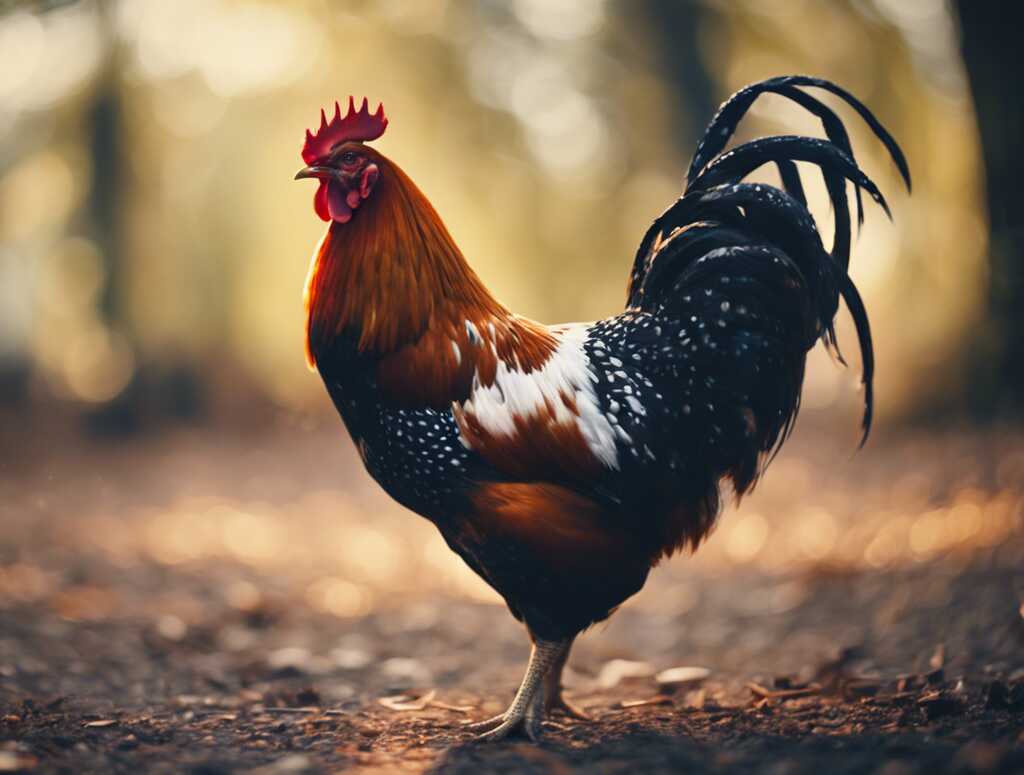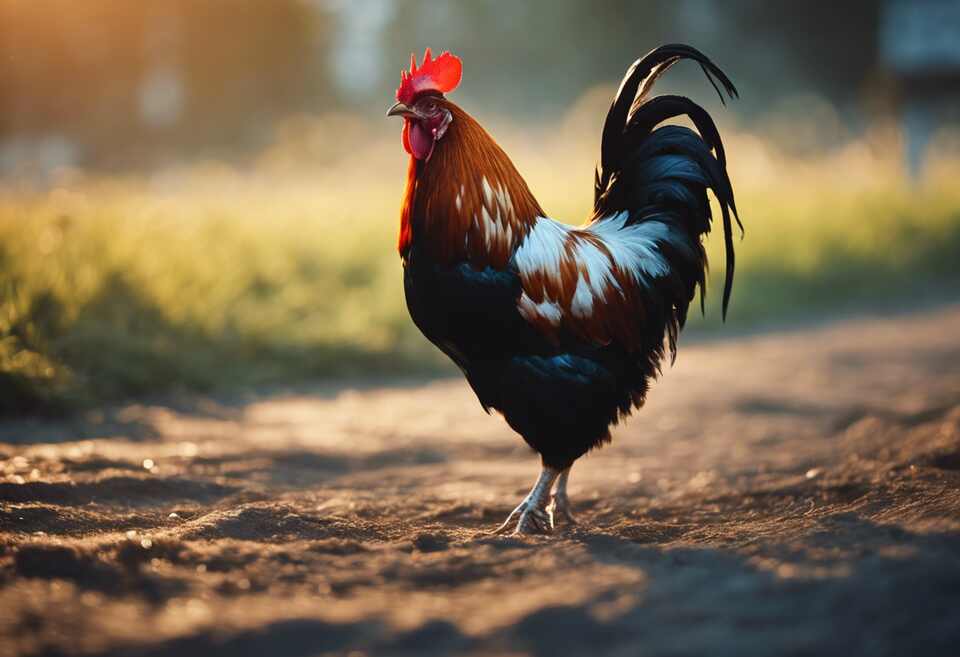Embark on a journey into the intriguing world of rooster behavior as we delve into the question: When Do Roosters Start Crowing? Delve into the fascinating factors that influence this age-old ritual, from environmental cues to social dynamics and genetic predispositions. Join us as we uncover the secrets behind the dawn chorus of these charismatic birds.
Table of Contents
Key Takeaways:
- Age and Onset: Roosters typically begin crowing at 4-5 months old.
- Environmental Factors: Increased daylight and external stimuli can trigger earlier crowing.
- Social Dynamics: Competition and territorial behavior influence crowing onset.
- Genetic Predisposition: Different breeds and individual genetics affect crowing age.
- Health and Nutrition: Good health and proper nutrition promote timely crowing.
- Breeding Practices: Selective breeding can impact the timing of crowing.
Factors Influencing the Onset of Roosters Crowing
Environmental Factors
Roosters typically begin crowing at around four to five months of age. However, various factors can influence the onset of crowing in roosters. One of the significant determinants is environmental conditions. Roosters are more likely to start crowing in response to external stimuli such as the presence of light. The increase in daylight hours during the spring and summer months can trigger roosters to start crowing earlier than during the darker months of autumn and winter.
Social Dynamics
Another critical factor that influences when roosters start crowing is social dynamics within the flock. Roosters are naturally competitive and territorial animals. The presence of other roosters in the vicinity can stimulate a young rooster to start crowing as a way to establish dominance and mark its territory. In situations where there is limited space or resources, roosters may start crowing earlier to assert their position within the hierarchy.
Genetic Predisposition
Genetics also play a role in determining when roosters start crowing. Different breeds of chickens have varying maturation rates, which can impact the onset of crowing. Some breeds are known for being more vocal and prone to crowing at an early age, while others may take longer to develop this behavior. Additionally, individual roosters within the same breed can exhibit differences in their crowing habits based on their genetic predisposition.
Health and Nutrition
The health and nutritional status of a rooster can significantly affect when it starts crowing. Roosters that are well-fed and in good health are more likely to reach maturity and start crowing at the expected age. On the other hand, roosters that are malnourished or experiencing health issues may exhibit delays in crowing. Providing a balanced diet rich in essential nutrients and ensuring proper healthcare can help promote timely development in roosters.
Breeding Practices
Breeding practices implemented by poultry farmers and breeders can also impact the onset of crowing in roosters. Selective breeding for specific traits such as early crowing or loud vocalization can influence the timing of when roosters start crowing in a particular lineage. Breeders may purposefully breed roosters with desirable crowing characteristics to promote early crowing behavior in subsequent generations.
The age at which roosters start crowing can be influenced by a combination of environmental, social, genetic, health, and breeding factors. By understanding these influences, poultry enthusiasts and farmers can better predict and manage the crowing behavior of roosters in their care. Monitoring and addressing these various factors can help ensure healthy development and appropriate vocalization patterns in roosters as they mature.
Understanding Rooster Behaviors for Chicken Keepers
Roosters are fascinating creatures that play a vital role in a flock of chickens. Understanding their behaviors is essential for chicken keepers to ensure the well-being and productivity of their poultry. One common question that many chicken owners have is, “When do roosters start crowing?” Let’s delve into this topic to gain insights into rooster behavior and the factors that influence their crowing habits.
When Do Roosters Start Crowing
Roosters typically begin crowing when they reach sexual maturity, which is around 4 to 5 months of age. As they mature, their crowing may become more frequent and robust.
Another factor that can influence crowing behavior is the presence of other roosters. Roosters are known for their territorial nature and tendency to establish a pecking order within the flock. When multiple roosters are present, they may crow more frequently to assert dominance and establish their territory.
Circadian Rhythms and Crowing Patterns
Roosters are diurnal creatures, meaning that they are most active during the day. Their crowing is often linked to their natural circadian rhythms, with most crowing occurring at dawn. The crow of a rooster serves several purposes, including signaling the start of a new day, establishing territory, and communicating with other members of the flock.
Environmental Factors and Crowing
Environmental factors can also influence a rooster’s crowing behavior. For example, changes in daylight exposure can impact the timing and frequency of crowing. Roosters may crow more during the longer days of summer and less during the shorter days of winter.
Additionally, external stimuli such as noise, predators, or disturbances can trigger a rooster to crow. Roosters have keen senses and will often crow in response to perceived threats or changes in their environment.
Managing Rooster Crowing
While crowing is a natural behavior for roosters, excessive crowing can be disruptive, especially in urban or residential settings. To manage rooster crowing, chicken keepers can consider the following strategies:
- Providing a well-structured environment with ample space and resources for the roosters.
- Ensuring the roosters receive proper nutrition and care to keep them healthy and satisfied.
- Limiting the number of roosters in the flock to reduce competition and crowing for dominance.
- Using soundproofing techniques in the coop or relocating the coop to a more secluded area.
By understanding the factors that influence rooster crowing behavior and implementing appropriate management strategies, chicken keepers can create a harmonious environment for their flock while enjoying the unique sounds of their roosters crowing at dawn.
Conclusion
In the world of poultry farming, understanding when roosters start crowing is essential for chicken keepers. Various factors influence the onset of crowing in roosters, including genetic predisposition, environmental stimuli, and social interactions within the flock. By recognizing these influences, chicken keepers can better anticipate when their roosters will start crowing and adjust their care routines accordingly.
Roosters typically begin crowing between 4 to 5 months of age, coinciding with sexual maturity and the development of their distinctive crow. Genetic factors play a significant role in determining the onset of crowing, as some breeds are known for crowing earlier than others. It is essential for chicken keepers to research the specific breed characteristics to have a better understanding of when their roosters are likely to start crowing.
Environmental stimuli, such as the presence of natural light, play a crucial role in triggering crowing behavior in roosters. The increasing daylight hours in spring signal the start of the breeding season, prompting roosters to crow to establish their territory and attract hens. Chicken keepers can utilize artificial lighting in the coop to simulate natural daylight, potentially influencing the timing of crowing in their roosters.
Social interactions within the flock also impact when roosters start crowing. The presence of other roosters or a lack of hens can lead to increased crowing as the roosters compete for dominance. Chicken keepers should provide adequate space and resources to minimize aggression among roosters, which can help reduce excessive crowing behavior.
Understanding rooster behaviors is essential for chicken keepers to maintain a harmonious flock environment. Crowing is a natural form of communication for roosters and serves various purposes, including establishing dominance, warning of potential threats, and attracting mates. By observing their roosters’ behavior closely, chicken keepers can interpret the meaning behind the crowing and address any underlying issues within the flock.
Proper nutrition and housing conditions also play a significant role in shaping rooster behavior, including crowing patterns. A well-balanced diet rich in essential nutrients is essential for roosters’ overall health and well-being, which can impact their vocalizations. Providing a comfortable and secure coop environment helps reduce stress levels in roosters, promoting more balanced behavior, including crowing.
The onset of roosters crowing is influenced by a combination of genetic, environmental, and social factors. By understanding these influences and observing rooster behaviors closely, chicken keepers can create a conducive environment for their roosters to thrive. Building a strong relationship with their flock, meeting their nutritional needs, and ensuring a well-maintained coop are crucial aspects of responsible chicken keeping.
By fostering a positive environment for their roosters, chicken keepers can enjoy the sight and sound of these magnificent birds crowing proudly in their coop.



